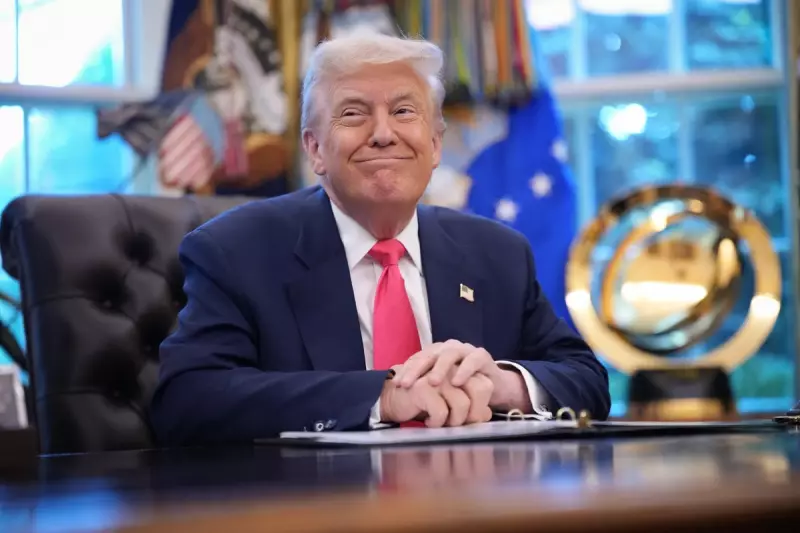
Former US President Donald Trump has ignited a firestorm of controversy with his latest pronouncement on the war in Ukraine, suggesting a resolution that would effectively reward Russian aggression.
In a deeply contentious interview, Trump claimed he could end the conflict "in 24 hours" by pressuring Ukraine to surrender occupied territories, including Crimea and the Donbas region, to Vladimir Putin. He described this capitulation as a "deal from heaven" for the Russian leader, a remark that has drawn condemnation from diplomats and allies of Ukraine alike.
A Chilling Proposition
Trump's proposed solution, which aligns with long-standing Russian objectives, involves forcing Kyiv to accept the loss of sovereign territory seized by force since 2014. This approach fundamentally undermines the principle of territorial integrity that has been a cornerstone of international law and Western support for Ukraine.
"It’s their land; it’s not Trump’s land to give away," one Western diplomat was quoted as saying, summarising the fury in European capitals. The proposal is seen not as a peace plan but as a recipe for a dictated, unjust peace that would embolden autocrats worldwide.
Contrasting Leadership: Trump vs. Biden
The remarks highlight a stark divergence in foreign policy vision between Trump and the current Biden administration. President Biden has championed a united NATO front, providing substantial military and humanitarian aid to help Ukraine defend itself.
Trump's comments suggest a return to a more transactional and isolationist approach, where alliances are secondary and strongman diplomacy takes precedence. This has caused significant anxiety among US partners who rely on American steadfastness.
Zelensky's Unwavering Stance
Ukrainian President Volodymyr Zelensky has consistently stated that any peace agreement must be based on justice and the full restoration of Ukraine's territorial integrity. Proposals that legitimise the invasion are considered non-starters in Kyiv.
Trump's "heavenly" deal for Putin is viewed by Ukrainian officials as a nightmare scenario that would only postpone a larger conflict, effectively validating the use of military force to redraw borders in the 21st century.
Implications for the 2024 Election
As the frontrunner for the Republican presidential nomination, Trump's foreign policy stance is now a central issue for American voters and the international community. His comments signal a potential dramatic shift in US support for Ukraine should he win a second term.
This prospect is being closely monitored in European governments, with many already contingency planning for a world where American commitment to its allies is no longer guaranteed.





